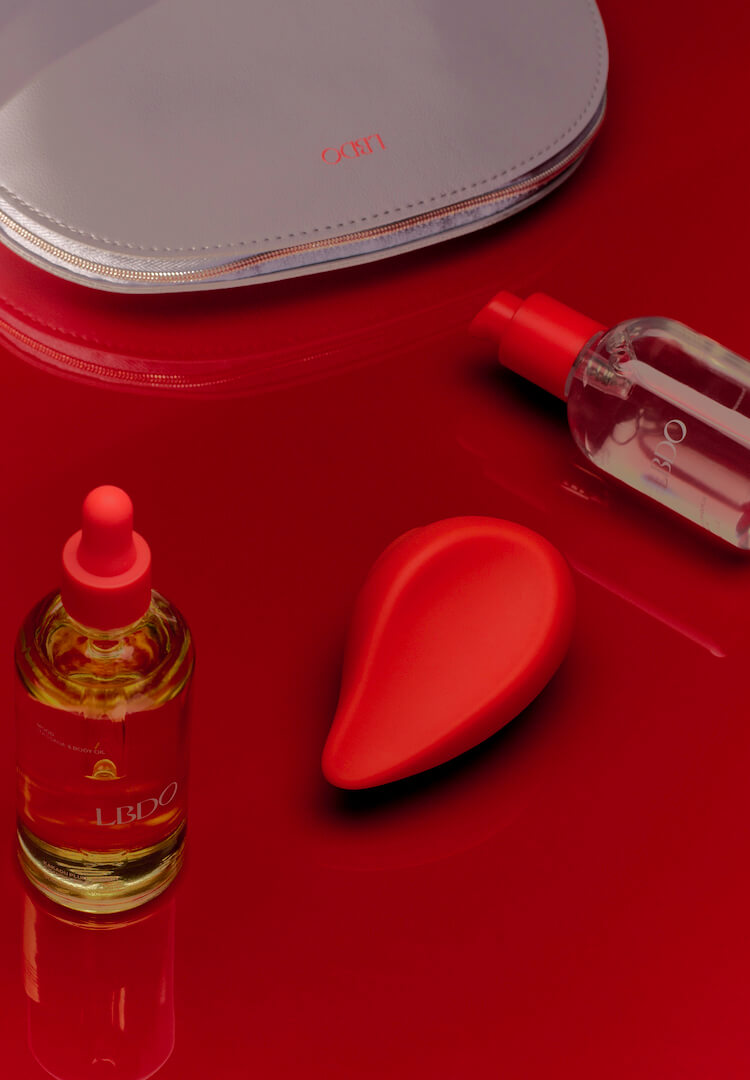Does your attachment style influence your sex life? An expert weighs in
WORDS BY DEANA STEPANIAN
“The attachment styles should be used as a tool for self-understanding.”
It doesn’t matter if it’s a long-term partner or a casual fling, exploring intimacy with another person is never entirely straightforward. Along with problems like body image issues and mismatched libidos, there are countless factors that can affect the way we engage with and view sex. While understanding what kind of sex drive both you and your partner have always helps, our attachment styles are great for mapping the deeper, psychological reasonings behind our sexual instincts and tendencies.
Excluding those who lean more towards a secure attachment style, those who identify as avoidant or anxious might experience greater difficulty in the bedroom. Whether you fear sex altogether or seek it out as a form of validation, addressing why and how we have developed these attachment styles is critical for navigating any issues they may subconsciously bring about.
Want to read more about how others navigate the world? Try our Life section.
By confronting our earliest and past relationships, which are super telling of how we embrace and experience our sexuality, we can learn to forge healthier experiences. Personally, I’ve swung between being anxious and secure depending on the partner I’ve been with at the time, which can sometimes make matters complex and confusing.
So, with hopes of improving how I approach my own sex life, as well as how you approach yours, I spoke to an expert. Below, Sexuality Educator and Sex Therapist Toya Ricci shares how each attachment style approaches sex and the possible challenges each faces.
Hi Toya! How do our attachment styles influence the way we navigate sex?
Well, a lot of it is… really just how we approach intimacy and the types of things that prevent us from being intimate. There are lots of reasons as to why we’re conditioned to have anxiety in sexual relationships. I mean, [there are] things that go back to social structures… or it could be the culture you grew up in. The idea is that these [attachments] are based on the relationships that [we] formed when we were [children].
But I think when it comes to sex… society has made us a bit avoidant, and also a bit anxious about it. So, I feel like we draw from all these different areas when it comes to sexual experiences. I guess they form blocks. They are the anxieties that prevent us from having really healthy, secure and intimate sexual experiences.
How might the different attachment styles approach intimacy and sex?
If you’re securely attached, then that means that you’re able to say… “Look, this is what I want” and you expect your partner will get it. And, if they don’t get it, then you’re happy to either leave or negotiate something else. So that’s all about communication and trust.
With the avoidant attachment styles, it’s going to be really hard to be vulnerable… so it’s going to be really difficult for them to connect intimately. Those types of people might… have a hard time perhaps orgasming or getting completely comfortable and as a result… they pull away rather than going towards [their] partner. For the [anxious] people… they might actually be quite enthusiastic about sex… and willing to try anything and everything.
But all of it… is secretly an attempt to get reassurance from the other person. And [sometimes], if they don’t receive it in the way they need, they are devastated. And it can cause fractures in their understanding of themselves and their sexuality… [and] be very difficult for them to know what they want sexually. So, it can be difficult for them to separate what they want [from] what their partner wants… They don’t know how to access their own pleasure.
In turn, how might sex affect attachment?
Good sexual experiences mean you can… start to form more secure attachments when you approach sex. But even a person who has had secure attachments their whole life, if they have a bad sexual experience they might become anxious or avoidant. So, I think sex is… a powerful way to mix up all our attachment styles.
And, likely, someone who experiences anxious attachment if they meet someone who reassures them in the way they need, they can flip to being secure. Avoidant people, they are probably the hardest to switch because they are avoiding things, and so the transformation has to come from within themselves. They have to realise why they are pulling away and challenge that.
What problems might arise between two people with different attachment styles?
Securely attached people might struggle to understand why someone’s avoidant or anxious. They might be like, “I don’t understand why you are being like this” because they know that everything’s fine [and] they don’t have that same [inner] voice.
With avoidant people, they might decide they don’t like sex, or that they can’t risk being that intimate with people… there are [other] different things they do to protect themselves. With anxious people… [they] are just trying to please all the time… If they are with a partner who wants to please them back [and] the anxious person doesn’t know what to say, then that could cause issues between the two of them. There’s never a sense of their own pleasure.
So, if people’s anxieties are connected to how they pull away from intimacy, then that’s what’s going to block them. Now, what I really want to say… and it’s the most boring thing ever, but regardless of the attachment style, communicate. So, even if you’re an avoidant person and you’re like, “Look, I have issues [expressing] vulnerability, it’s hard for me to be close” then it’s about negotiating with your partner. So, admitting that, so that your partner doesn’t think there’s anything wrong with them, and then… you can negotiate within the sexual relationship what you both need to be comfortable.
How can avoidant and insecure attachment styles form healthier sexual behaviours?
So, usually what I tell my clients is that the first thing you do is ask each other, “What do you need to feel pleasure in this moment?” and what that does is it gives you the opportunity to, number one, make space for consent so that you know that you’re not going to do anything that the other person would not consent to. And, number two, [stop] trying to read their mind.
Like, how can you please someone if… they don’t know what they want? It’s like trying to order for someone at a restaurant and not knowing if they are hungry, or what food they’ve had or what allergies they might have. So, we have this communication built in where you talk at the beginning about what you want.
You can make it sexy; it doesn’t have to be this boring, like contractual conversation. The attachment styles should be used as a tool for self-understanding. It’s up to you to say this is what I need to not feel anxious… you have [a] responsibility when you identify with something.
For more on how attachment styles shape our sex lives, try this.













